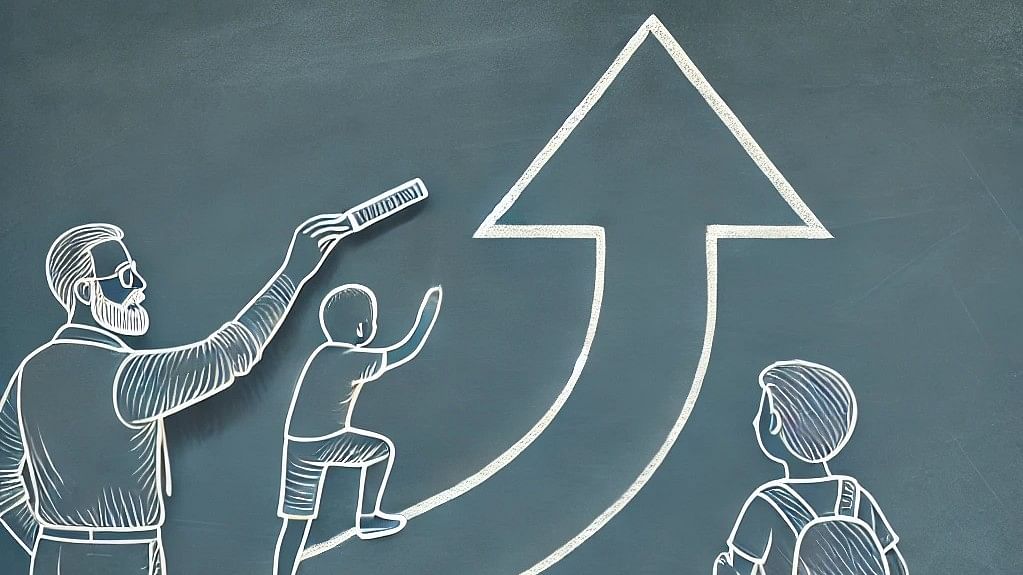
Credit: Special Arrangement
Richard Riley, former United States Secretary of Education, once said, “We are currently preparing students for jobs that don’t yet exist… using technologies that haven’t been invented… in order to solve problems we don’t even know are problems yet.”
These words resonate today more than ever. As the job market becomes increasingly competitive and new technologies emerge threatening existing roles, the question remains: Are our educational institutions equipping students with the skills needed to face these challenges? Are they future-ready?
Being future-ready means students must possess the skills, knowledge, and mindset necessary to succeed in tomorrow’s world. This involves not only proficiency in current technologies and academic subjects but also the ability to adapt, innovate, and navigate uncertainties. A forward-thinking attitude that embraces change and lifelong learning is essential. Students must constantly seek opportunities for growth and innovation.
What should institutions do?
Educational institutions play a crucial role in transforming students into future-ready citizens. They must focus on building essential skills and competencies. According to a recent survey of employers, the following skills are highly valued: leadership, teamwork, a strong work ethic, initiative, flexibility and adaptability, communication, problem-solving skills, and computer skills. However, many employers feel that recent graduates often lack these crucial skills.
To handle the complexities of today and tomorrow with confidence and efficacy, students need to develop several skills ready for future use. Critical thinking is foremost among these, involving the objective analysis of information, evaluation of arguments, and drawing logical conclusions. Critical thinking is essential for both academic and professional success. Problem-solving skills are equally vital, empowering students to identify challenges, discover innovative solutions, and adapt to changing circumstances.
These skills are indispensable for navigating the complexities of a fast-evolving, technology-driven world. Creativity and innovation are also of paramount importance. Creativity promotes originality and the ability to generate novel ideas. Coupled with innovation, it drives progress and propels individuals to explore new possibilities. Cultivating these qualities equips students to think outside the box, tackle problems from unconventional angles, and contribute to advancements in various fields.
Effective communication is fundamental for conveying ideas, building relationships, and fostering collaboration. By honing their ability to articulate thoughts clearly and listen actively, students enhance their capacity to work with peers, share perspectives, and work towards common goals.
Understanding and appreciating diverse perspectives, experiences, and cultures is vital in today’s interconnected world. Cultivating cultural competence and global awareness fosters empathy, respect, and understanding, which are essential for collaborating effectively in multicultural environments and addressing global challenges collectively.
Developing skills for experimentation and risk-taking encourages students to identify opportunities, innovate solutions, and passionately pursue their goals. An entrepreneurial mindset encompasses creativity, initiative, resilience, and a willingness to take calculated risks. Recognizing and managing emotions, understanding others’ perspectives, and navigating interpersonal relationships effectively are crucial. Improving emotional intelligence enhances social and emotional skills, fosters healthy relationships, and improves overall well-being.
Technical education and soft skills
In today’s digital age, technological literacy is a prerequisite for success. Proficiency in using technology tools and platforms, understanding digital systems, and adapting to technological advancements empower students to navigate digital landscapes confidently and harness technology to solve problems and innovate effectively.
Hardships and failures are integral to learning. Students must be able to treat success and failure with equanimity. Adaptability and resilience involve the ability to embrace change, overcome setbacks, and bounce back from adversity. By fostering these traits, educators equip students with the flexibility and mental fortitude to navigate uncertainty and embrace new challenges.
Educational institutions must incorporate these future-ready skills into their curricula and teaching practices to help students excel in them. This includes including future-ready skills outcomes in assessments through performance-based assessment methods. Course and instructional materials should be designed to achieve these outcomes. Creating a supportive classroom environment that facilitates the development of future-ready skills is essential.
The shift towards explicitly teaching and assessing 21st-century and future-ready skills allows students to develop these skills in the classroom, better preparing them to find suitable employment and excel in their careers. Our students’ future readiness hinges on our ability to adapt our educational approaches to meet the evolving demands of the global job market. By prioritising the development of critical, creative, and adaptive skills, we can ensure that our students are prepared for the future and poised to shape it.
(The writer is a professor and dean of Christ University, Bengaluru)